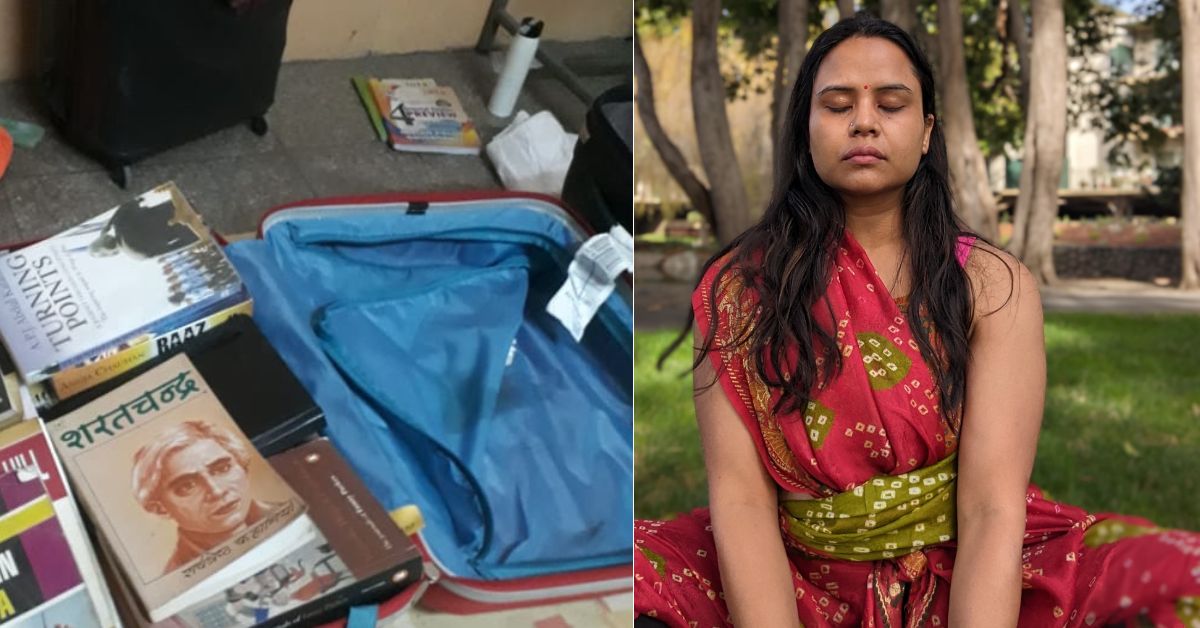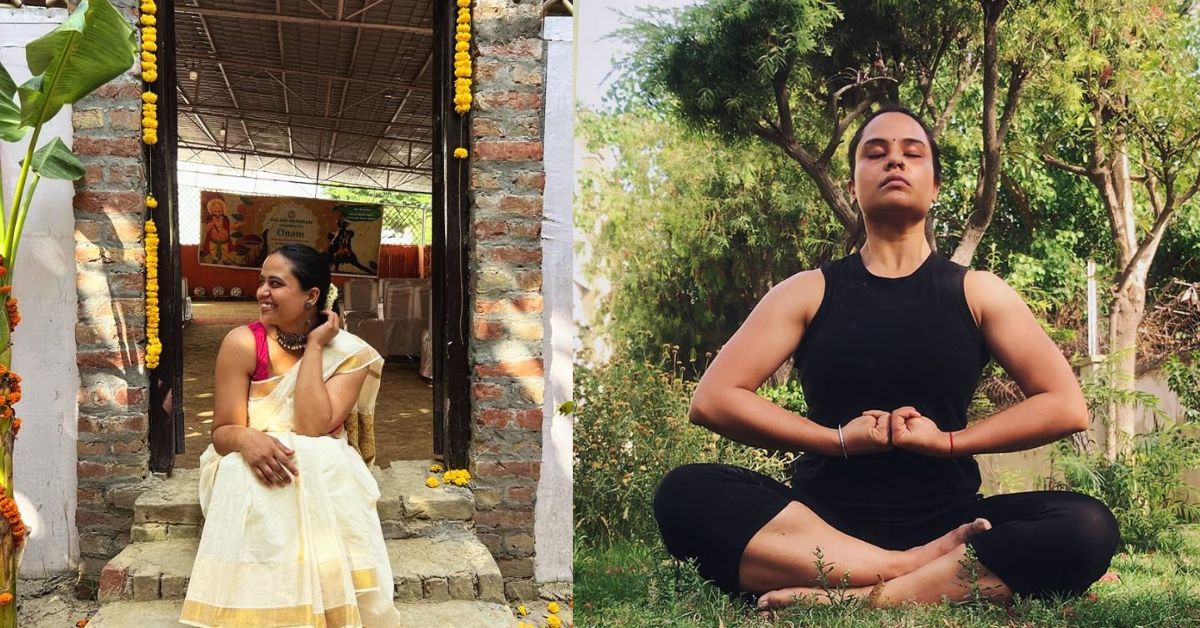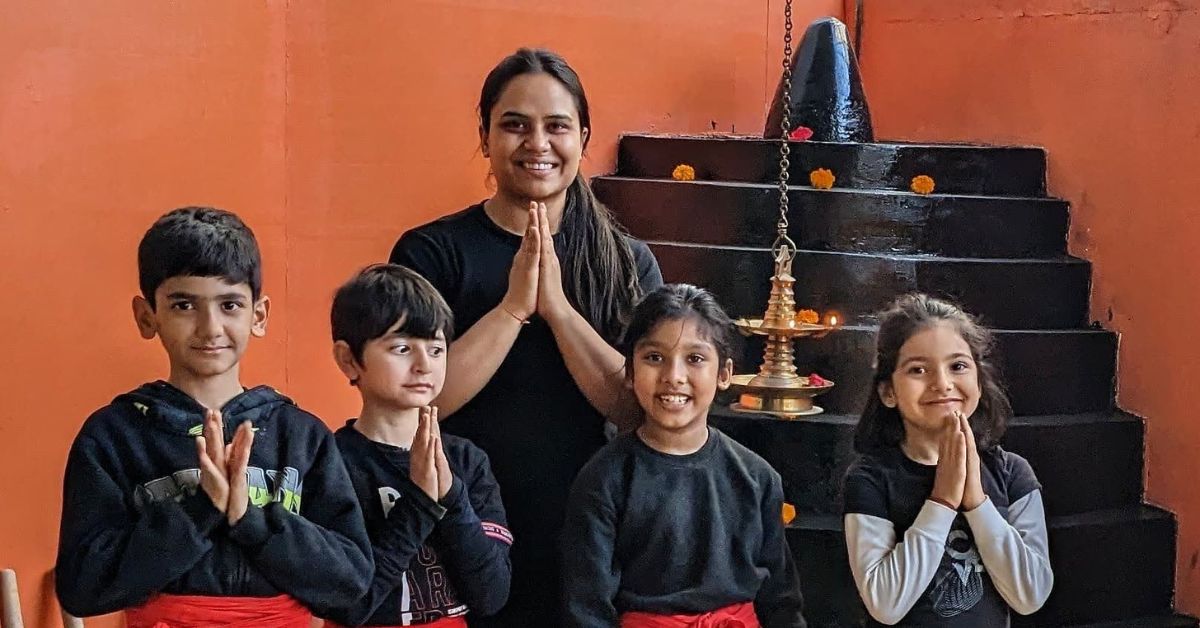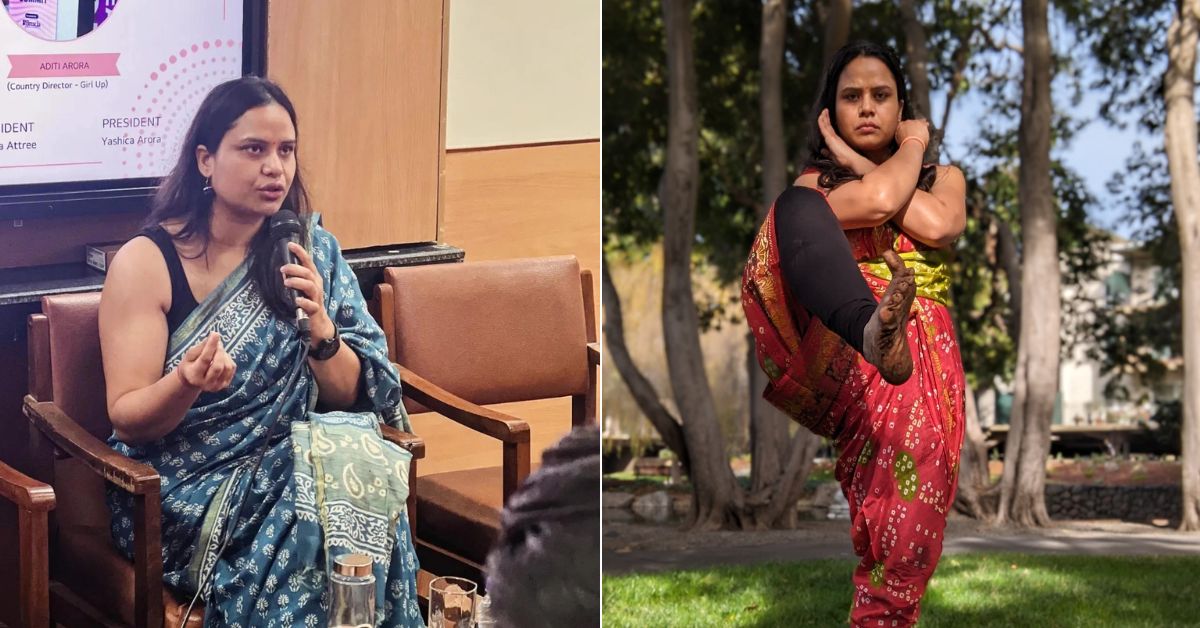In the wee hours of 24 October 2020, Kajal Srivastava was standing on the balcony of her home in Greater Noida. Staring down from the eighth floor of her apartment, she yearned to jump off the balcony.
The results for one of the most challenging examinations in the country – the UPSC Civil Services Examination (CSE) – were out and she did not make it to the list yet again.
“I wanted to become an IPS officer. I was so sure of my success but I failed to clear UPSC even in my last chance. I couldn’t dare to tell anyone about the result. I wanted to jump off the balcony not because I had failed again but because I was tired. I was too tired to prove myself. I was too tired to give myself more chances. I wanted peace instantly,” she recalls in conversation with The Better India.
Her sister found her in this vulnerable state and hugged her tightly as she sobbed in her arms. “She told me that I was not a failure and if I couldn’t serve the country by becoming an IPS officer, then another big opportunity was waiting for me,” Kajal adds.
That day, Kajal mustered the strength and sat down at her study table. On a blank sheet of paper, she wrote “TAVASI – my movement of courage”.

The six-year-long hustle
After graduating from Hansraj College, Delhi, Kajal took admission in a prestigious coaching institute in Rajendra Nagar to prepare for UPSC CSE. Her day started with attending coaching classes from 8 to 11 in the morning.
“I would come to my room, which was more like a hole. It had a small bed with termites and bed bugs, a small chair, a table, and an almirah. There was a small exhaust fan which was the only source of natural light and ventilation. Anybody could become claustrophobic in that room,” she recalls.
“And I was paying Rs 14,000 for that tiny room. I couldn’t ask for more money from my parents. I had already spent Rs 2 lakh on coaching fees. The first step for me was to survive in this environment,” she adds.
Away from the comforts of her home, Kajal dedicated herself to preparation. In 2014, she gave her first attempt but couldn’t clear the preliminary stage. She reappeared for the exam in 2015 but failed again.
“By then, everybody started telling my parents that I was wasting their time and money. Meanwhile, I was surviving on a bare minimum lifestyle, sometimes skipping meals. If I met a friend or slept extra, I felt guilty. I started remaining anxious and became obese. This was followed by diseases like thyroid and PCOS,” she says.
At a time when her friends were either getting married or settling abroad, the 32-year-old was sitting in her tiny room surrounded by books.

In 2016, she went on to appear for the prelims exams but a tragedy struck. “A day before the prelims, I experienced a severe stomach ache. The doctor advised immediate surgery for appendicitis. I requested him to give me some pain relief so that at least I could appear for the exam,” she shares.
While going to the centre, Kajal fainted and was brought to the hospital. The surgery was performed on the day of her exam.
“My entire year was wasted. But I had no Plan B. I continued to study all day and night. And I started improving in my mock papers,” she adds.
In 2017, Kajal gave her third attempt but couldn’t clear the exam. This continued until she exhausted all six attempts by 2020.
“I did not understand what was wrong with me. I would score good marks in my mocks. But when I would appear for the main examination, I would become blank. I knew the questions but despite that, I would make mistakes. All the taunts questioning my abilities would come rushing back. I could only hear one voice, ‘You can’t do this’,” she adds.
For a long time after the result announcement, Kajal could not dare to visit Rajendra Nagar as it brought back all the painful memories of her preparation journey.
Failed at UPSC, not in life

Kajal says she can’t relate to the previous version of herself anymore. She credits this transformation to Kalaripayattu – recognised as the oldest surviving martial art in India.
She shares how she was introduced to the art. “As a child, I was fascinated by lathbaaji (the sport of mastering attack techniques using a long wooden stick) from a Bollywood film Virasat. Once, a yoga practitioner came to my home and mentioned Kalaripayattu, which could give me a chance to learn various martial art techniques,” she recalls.
In 2017, while preparing for her third attempt, Kajal joined a gurukulam (residential learning centre). “Whenever I practised the art, I felt composed and calm. This came as a saviour to me when I was struggling in my preparation journey. From day one, I decided I would never leave this art,” she adds.
“Practising this art requires you to master various posture movements that really helped me in curing my spondylitis, thyroid, regulating body weight, and controlling my mental state. I felt it was healing the broken me. It was miraculous for me. I was becoming a different person,” Kajal adds.
She says that after joining Kalaripayattu, which is considered one of the most difficult martial arts to master, she began excelling. “My guru Shinto Mathew showed confidence in me and said I was born to make a career in it. For the first time, somebody showed trust in me and told me that I could do better,” says Kajal, who is mastering the third stage of the four-stage art through metal weaponry.

Kajal found solace in Kalaripayattu and went on to become an assistant teacher at her gurukulam. With her TAVASI movement, she has conducted several workshops to promote the art and has assisted more than 2,000 people living in trauma to find solace.
One of her students, Amit Sharma, shares his experience of working with Kajal in mastering Kalari, “The art is very close to my heart. It has taught me a lot about myself and how ancient warriors prepared for war or any situation. I can prepare my mind and body similarly. This has been rewarding. Kajal helped me identify my strengths and work on my weaknesses. As a result, I feel fitter and more at peace.”
Recently, she also launched a startup ‘Swadesi Sports Wear’ to replace synthetic activewear with natural fibres like cotton, linen, and khadi. “After a personal experience of fungal infection due to synthetic clothes, I worked on making activewear suitable for heavy workouts,” she says.
Today, looking back at her journey, Kajal says, “Had it not been for Kalari, I would not have survived. This art saved my life. I could be a UPSC failure, but I did not fail in life. I am proud of myself that I did not give up. I restarted my life and today I am glad that I didn’t clear the exam.”
Edited by Khushi Arora. All photos: Kajal Srivastava.
No comments:
Post a Comment